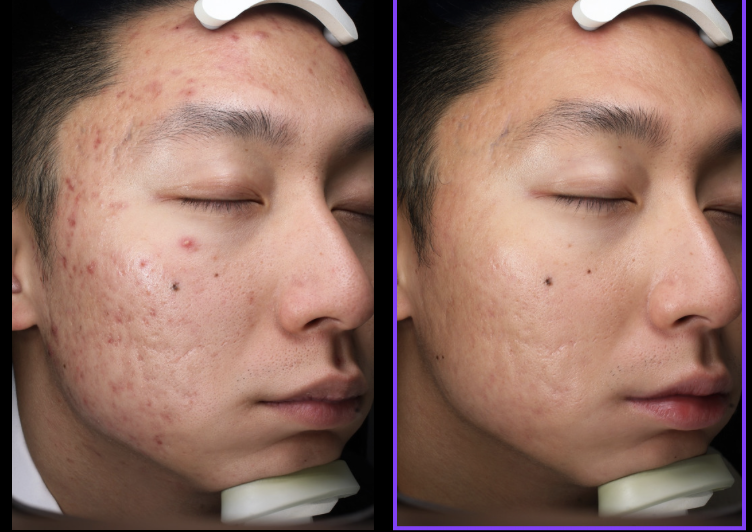Checking Out the Function of Skin Specialists in Identifying and Dealing With Diverse Skin Problems With Accuracy
From typical problems like acne and dermatitis to extra complex conditions such as melanoma or unusual genetic skin conditions, skin doctors are at the leading edge of detecting and dealing with these problems with accuracy. Beyond the surface area of skin conditions exist interconnected elements that influence medical diagnosis and treatment end results.
Importance of Early Discovery
Early detection of skin problems plays a crucial function in the reliable therapy and management by skin specialists. Timely recognition of skin issues enables for punctual treatment, which can prevent the progression of problems and decrease potential problems. Skin specialists depend on their knowledge to acknowledge refined adjustments in the skin that might indicate underlying problems, such as skin cancer, psoriasis, eczema, or dermatitis. By carrying out detailed exams and utilizing diagnostic tools like biopsies or dermoscopy, dermatologists can accurately diagnose a variety of skin disease.
Moreover, early discovery allows skin specialists to tailor therapy strategies to the particular needs of each patient. For circumstances, identifying skin cancer cells in its early phases dramatically enhances the prognosis and increases the chance of effective treatment end results. By stepping in early, skin specialists can additionally aid ease symptoms, prevent intensifying of the condition, and enhance the total top quality of life for their clients. Highlighting the relevance of early discovery emphasizes the vital duty that dermatologists play in promoting skin wellness and well-being.
Advanced Diagnostic Strategies
Utilizing advanced modern technology and specialized know-how, skin doctors employ sophisticated analysis strategies to accurately determine and analyze various skin problem. Among the key devices in the dermatologist's diagnostic toolbox is dermoscopy, a non-invasive strategy that enables the exam of skin frameworks not noticeable to the nude eye. By multiplying the skin, dermoscopy help in the early detection of cancer malignancy, basic cell cancer, and various other skin cancers cells. In addition, dermatologists might utilize confocal microscopy, a high-resolution imaging method that enables them to imagine skin at a cellular level without the need for a biopsy. This technology is especially valuable in diagnosing inflammatory skin problems and tracking treatment effectiveness.
Moreover, molecular testing has actually reinvented the diagnosis and therapy of skin diseases by enabling dermatologists to assess hereditary mutations linked with conditions such as cancer malignancy and genetic dermatoses. Via methods like polymerase domino effect (PCR) and next-generation sequencing (NGS), skin doctors can offer personalized treatment strategies based on a person's certain genetic account. These advanced analysis tools improve the precision and effectiveness of dermatological treatment, ultimately causing better end results for patients.

Tailored Therapy Techniques
With a detailed understanding of skin disease accomplished with advanced diagnostic techniques, skin doctors customize therapy techniques to deal with private patient needs properly. This tailored strategy is critical in making certain ideal results for individuals with diverse skin problem. By considering factors such as skin kind, clinical background, way of life practices, and therapy preferences, Chromaderm dermatologists can establish therapy strategies that are particularly customized to every client.
Tailored therapy techniques may include a combination of treatments such as topical Clicking Here drugs, oral drugs, minimally invasive procedures, or way of living adjustments. Clients with acne might profit from a regimen that consists of topical retinoids, oral antibiotics, and in-office treatments such as chemical peels or laser therapy. On the various other hand, people with eczema might require a treatment strategy focused on mild skincare regimens, moisturizers, topical corticosteroids, and recognizing and avoiding triggers that worsen their condition.

Taking Care Of Chronic Skin Conditions
Skin doctors play a critical function in developing lasting monitoring techniques for chronic skin disease, making sure effective treatment and enhanced quality of life for individuals - Chromaderm Dermatologist. Managing persistent skin disease calls for a detailed approach that exceeds just dealing with symptoms. Skin doctors are trained to not just identify these problems precisely but additionally to create tailored treatment strategies that deal with the underlying aspects and reasons contributing to the skin disease's persistence
In handling chronic skin problem, dermatologists typically use a combination of therapy methods tailored to every person's specific requirements. This might include topical medicines, dental drugs, lifestyle adjustments, and step-by-step treatments such as laser therapy or phototherapy. Routine follow-up consultations are essential to keep an eye on the problem's progression, adjust treatment as needed, and supply recurring support and education to individuals.
In addition, skin doctors play a pivotal duty in encouraging patients to take an active role in managing their skin problem. By informing individuals concerning their problem, therapy options, and preventive measures, skin specialists aid individuals make educated choices and grow healthy and balanced skin routines that add to long-lasting skin wellness and total wellness.
Collaborative Treatment Methods
In the alternative administration of skin conditions, collective care strategies entailing numerous medical care experts are necessary for maximizing individual results. Dermatologists frequently operate in multidisciplinary groups to give detailed care that deals with the you could try this out diverse needs of people with skin disease. By working together with primary care medical professionals, allergists, cosmetic surgeons, and other experts, skin doctors can ensure that people obtain incorporated and coordinated treatment tailored to their specific problem.
Collaborative treatment techniques also expand to individual education and assistance. Skin specialists can function carefully with pharmacologists, nurses, and psycho therapists to educate individuals about their skin disease, treatment alternatives, and safety nets. This interdisciplinary method encourages clients to proactively participate in their treatment and make educated decisions concerning their wellness.
Additionally, joint care enables a more alternative analysis of patients, thinking about not just the physical symptoms of their skin problem but likewise the emotional and social effect it may have. By thinking about the more comprehensive ramifications of skin problem, healthcare specialists can develop a lot more personalized treatment strategies that address the distinct demands of each client. Eventually, joint care techniques play a crucial role in providing high-quality, patient-centered take care of individuals with diverse skin disease.
Final Thought
In verdict, skin doctors play a vital function in diagnosing and dealing with a vast variety of skin conditions with precision. By handling chronic skin problems and implementing collaborative care approaches, skin specialists guarantee reliable and detailed treatment for their clients.
Dermatologists count on their experience to acknowledge refined changes in the skin that might indicate underlying troubles, such as skin cancer, eczema, dermatitis, or psoriasis. By magnifying the skin, dermoscopy help in the very early detection of cancer malignancy, basal cell cancer, and various other skin cancers.With a thorough understanding of skin conditions attained through sophisticated analysis techniques, skin specialists customize treatment strategies to deal with specific client requires efficiently. Skin doctors are educated to not only detect these conditions precisely yet also to produce personalized therapy plans that resolve the underlying causes and elements contributing to the skin condition's determination.
In taking care of chronic skin conditions, skin specialists frequently utilize a mix of therapy modalities tailored to each individual's details requirements.